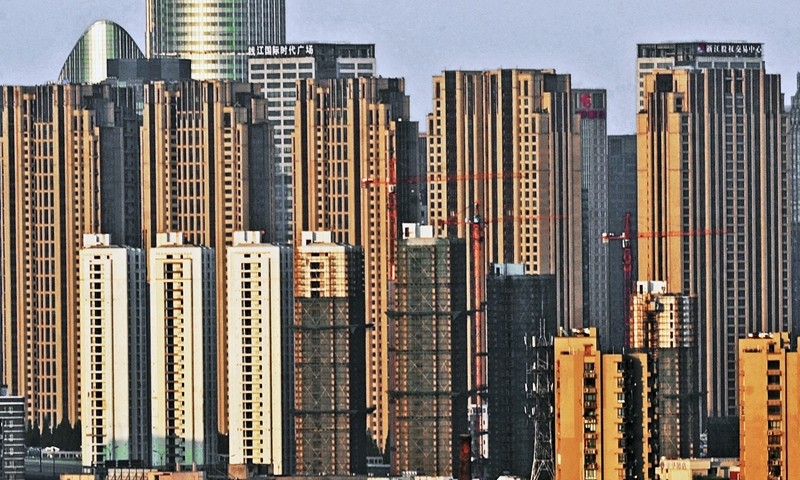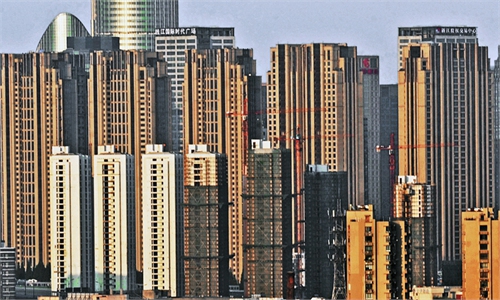Housing market picks up during Spring Festival holidays as home inspections increase

real estate Photo:Xinhua
The Spring Festival holidays used to be a time for travel and family reunions in China and a quiet period for the real estate market. But with epidemic prevention and control moving into a new phase, this year has seen new changes as first-time home buyers and hunters of secondhand houses increased.
Favorable government policies, synchronizing with developers' purchase incentives, have unleashed demand for housing buyers that will help spur the real estate market and expand internal consumption, experts and industry participants said.
According to 58 Anjuke Real Estate Research Institute, house-hunting "fever" in cities of all sizes rose 3.7 percent year-on-year during this year's Spring Festival holidays.
"During the seven-day holidays, house visits and transactions for new and secondhand homes [in our store] both increased 5 percent compared with the last month of 2022," a Beijing-based agent surnamed Xiao with Lianjia, a leading housing agency in China, told the Global Times on Monday.
Xiao said that some properties launched sales promotion to attract consumers, such as free home appliances and coupons for parking spaces. "I'm very confident that the housing market will rebound this year," he added.
Besides, China's secondhand housing market is also bubbling up. Data from Beike Research Institute showed that inquiries and transactions for secondhand houses increased significantly compared with last year's Spring Festival.
Among the 50 cities that Beike monitors, Dongguan and Foshan in South China's Guangdong Province have seen double the number of home inspections during the Chinese New Year period, and the rate in Shenzhen increased by 86 percent.
Transactions of secondhand houses in the key 50 cities increased by 57 percent during this year's Spring Festival. According to Beike, the volume of transactions in secondhand buildings in the first 27 days of January was basically close to the whole month of December last year, and average daily transactions in Beijing, Langfang, Tianjin and Shijiazhuang increased by 38 percent in January.
Both demand for housing and market confidence picked up in January, as favorable policies for real estate developers and home buyers were rolled out, Yan Yuejin, research director at Shanghai-based E-house China R&D Institute, told the Global Times on Monday.
On January 10, the People's Bank of China, the country's central bank, and the China Banking and Insurance Regulatory Commission jointly held a meeting, aiming to prevent and address the risks of high-quality leading housing enterprises and implement plans to improve their balance sheets.
In terms of the demand side, the two departments issued a notice saying they had decided to set up a "dynamic adjustment mechanism" for mortgage interest rates in an effort to stabilize the real estate market. Cities where the prices of newly built commercial houses have dropped for three consecutive months are allowed to break the lower limit of first-home rates.
Some banks in Zhengzhou, Central China's Henan Province on Sunday announced a reduction in mortgage rates for first-time buyers to as low as 3.8 percent, which cuts costs and demonstrates the government's support for inelastic housing demand, Yan noted.
"A number of provinces including Jiangsu, Liaoning and Guangdong have included boosting housing consumption in their general framework of economic development in the new year. Housing consumption is expected to play a more important role as a 'pulling force' for the national economy in 2023," Yan added.
Global Times


